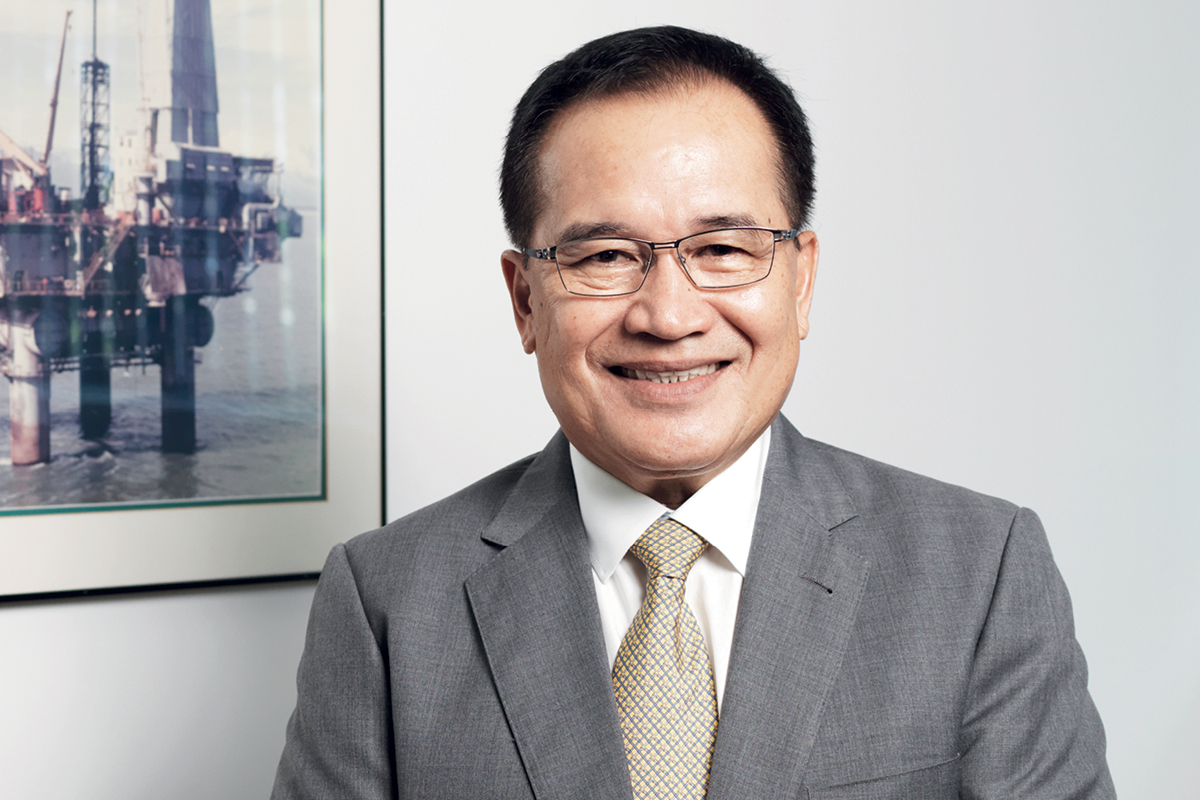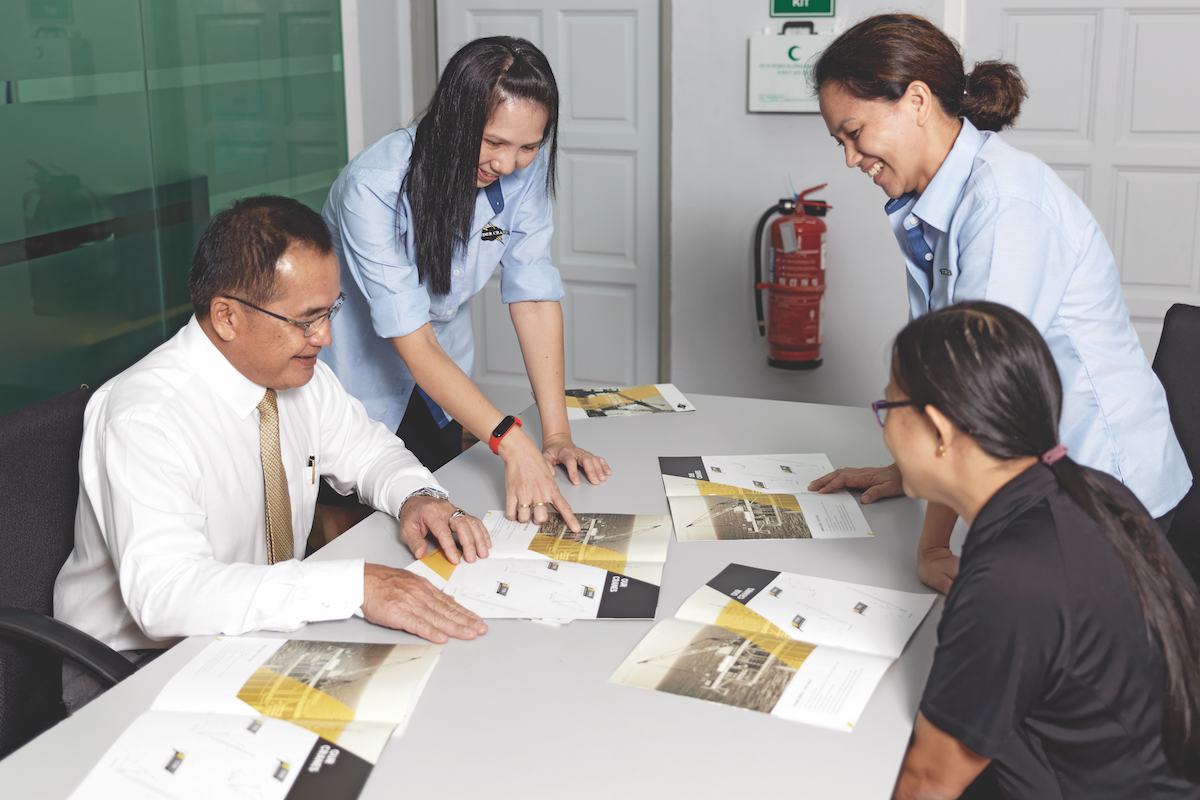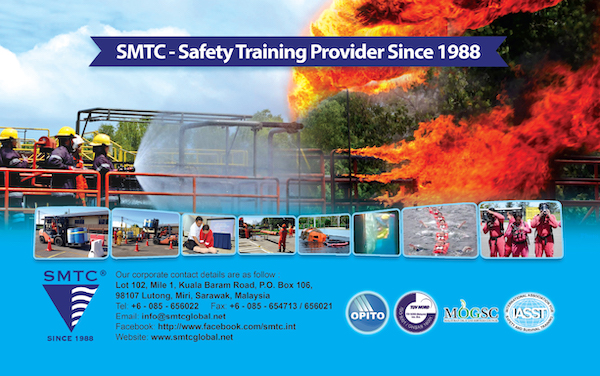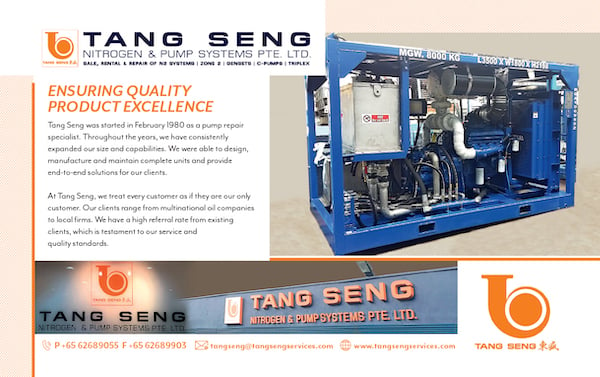Are leaders born to lead or do they learn to lead? This is a question that’s often hotly debated in the business world and, while there’s no right or wrong answer, Thunder Cranes CEO Chris Poheng has his own theory on the matter. He believes good leaders aren’t necessarily born with the ability, yet the right upbringing can equip people with leadership skills from a young age.

“When I was a child, some of my friends used to sell cakes and so forth for their parents before they went to school in the morning,” he recalls. “By doing that, they were building character and becoming enterprising, so when they grew up and entered the business world, they already had that ability. So, although they were not born with
it, over the years it was incorporated into who they are as a person.”
This is why Chris believes leading with authenticity is essential. “My leadership philosophy is, first of all, you have to be authentic and be yourself. If you’re authentic, when people deal with you they don’t have to second-guess you, so that’s why it’s so important to be yourself,” he asserts.
“The other key aspect of leadership is the art of influencing people. You need to communicate with them. If you can influence more people, that means more people are taken on board with you to do their jobs more efficiently.”
Servicing the offshore oil and gas industry, Thunder Cranes offers a wide range of portable, modular, self-lifting rental cranes. Prior to joining the company in 2018, Chris had spent the majority of his career working in the global energy sector.
After holding senior leadership roles at Malaysian oil and gas company Petronas for 31 years, Chris spent a further six years at Thai oil company PTTEP, where he led the development of a new gas field in Myanmar. When the owner of Thunder Cranes approached Chris two years ago, his knowledge of the industry was limited to what he had learned as a client.
“I put some thought into it and said to myself, ‘Why not join a company that is still in the oil and gas industry, but on the other side of the fence?’ I thought it could be a good challenge,” he recalls. “Whenever you come to work in a new area, it’s always a challenge and Thunder Cranes was no exception. Looking at how the company operates, I knew there was room for improvement and I knew I had to make some hard decisions in implementing changes in the business. The biggest challenge would be people resisting it.

“I introduced some new processes to make the business more transparent, and initially my employees resisted the changes. So how do you overcome a problem like that? The best way forward is to explain to them the rationale behind the decisions and go ahead implementing it with confidence. Through my experience, people will be convinced
if you can show them the results.”
While Chris thrived on the challenge of a new role, he also quickly identified potential to grow the business. The company currently operates in Malaysia and Thailand, but Chris is keen to expand its operations into other Asian markets, such as Vietnam, Indonesia and Brunei, as well as the Middle East. A self-lifting system means Thunder Cranes can deploy even its largest cranes on platforms where there are no existing cranes.
Additionally, the lightweight, portable and modular design of the cranes allows them to be installed in less than two days. “It’s very unique, because normally cranes are fixed. But our cranes are just like Lego; you can build them up,” Chris explains.
“It’s more than rental cranes; we are providing a solution, a customised lifting solution specifically for the customer. We’re not just putting a crane on the platform and that’s it. We have to bring engineers to ensure the integrity and safety of the crane and the platform. Therefore, our vision is to be a global leader in lifting solutions.”
Chris adds that working closely with business partners and suppliers helps Thunder Cranes to deliver high-quality service and equipment to its clients. “Building strong relationships is very, very important, because that way we can build trust between the two parties. Collaboration makes us more efficient and directly improves the services we provide to our clients,” he says.
In fact, Chris believes one of the keys to success in business is building strong relationships, whether that’s with internal or external stakeholders. Passion, he says, is the other key. “You have to be passionate about your work,” he smiles. “If you hate what you’re doing, it will be difficult to see progress. You need to have that burning passion.”
Proudly supported by:




